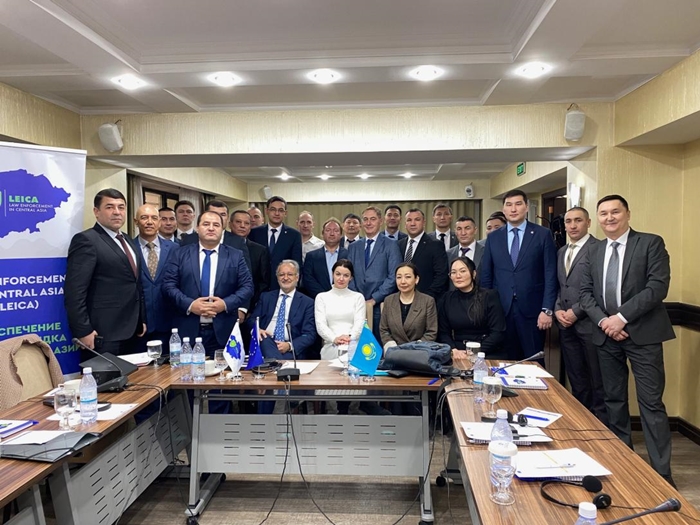Techniques of negotiation in hostage and the use of weapons in crisis situations, has been the focus of a five-day training organized by the project on Law Enforcement in Central Asia – LEICA, funded by the European Union, in Almaty (Kazakhstan). The training took place from 22-26 January 2024. At the training actively participated 19 officers of diverse law enforcement agencies (the General Prosecutor Office, the Security Services, the Ministry of the Interior, the Ministry of Justice, and the National Guard) of Kazakhstan, Kyrgyzstan, Tajikistan, Turkmenistan, and Uzbekistan.
Expert practitioners from France, Poland and Spain provided the participants with practical information and techniques on how to conduct negotiations in different crisis scenarios, like terrorist hostage / attack, hostage during bank assault, and negotiations in case of suicide attempt or with mentally disabled people posing a serious risk to the life of people. They played the role of negotiators and perpetrators in different scenarios, learning by doing, followed by a critical assessment of their performance, discussed in groups.
The participants were familiarized with a gradual approach when using force. They examined thoroughly the legal requirements and the judicial consequences when firearms have been used by law enforcement officers, in particular when the negotiation has failed, and the use of assault team has been unavoidable to prevent further fatal consequences.
This type of LEICA activities is very useful because, while conducting the training, there is an interaction between law enforcement officers of the European Union Member States and its counterparts in Central Asia: this facilitates the mutual understanding of two different cultures and therefore it makes operational cooperation easier.
LEICA Director evoked the sad episodes that France suffered some years ago, when dozens of people died in several terrorist attacks, and other saved their lives thanks to the effective work of negotiators.
The Project LEICA (Law Enforcement in Central Asia) is funded by the European Union, and it is led by the consortium made of French CIVIPOL and Slovak ISEMI, supported by Interpol. ///EU Delegation to Uzbekistan, 26 January 2024
